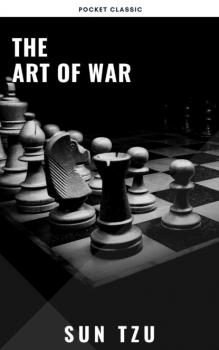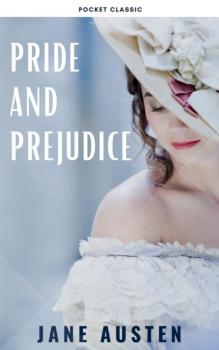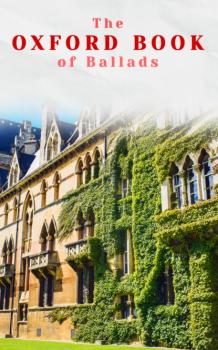ТОП просматриваемых книг сайта:
ЛИТМИР - LITMIR.BIZ - Электронная библиотека
Скачивание или чтение онлайн электронных книг.Аннотация
Contains Active Table of Contents (HTML) The world's most influential treatise on strategy
The Art of War' is an ancient Chinese military treatise dating from the 5th century BC and is attributed to the ancient Chinese military strategist Sun Tzu. The text is composed of 13 chapters, each of which is devoted to one aspect of warfare and it is commonly thought of as a definitive work on military strategy and tactics. It was placed at the head of China's Seven Military Classics upon the collection's creation in 1080 by Emperor Shenzong of Song, and has long been the most influential strategy text in East Asia. It has had an influence on Eastern and Western military thinking, business tactics, legal strategy and beyond.
The Art of War' is an ancient Chinese military treatise dating from the 5th century BC and is attributed to the ancient Chinese military strategist Sun Tzu. The text is composed of 13 chapters, each of which is devoted to one aspect of warfare and it is commonly thought of as a definitive work on military strategy and tactics. It was placed at the head of China's Seven Military Classics upon the collection's creation in 1080 by Emperor Shenzong of Song, and has long been the most influential strategy text in East Asia. It has had an influence on Eastern and Western military thinking, business tactics, legal strategy and beyond.
Аннотация
Since its immediate success in 1813, Pride and Prejudice has remained one of the most popular novels in the English language. Jane Austen called this brilliant work «her own darling child» and its vivacious heroine, Elizabeth Bennet, «as delightful a creature as ever appeared in print.» The romantic clash between the opinionated Elizabeth and her proud beau, Mr. Darcy, is a splendid performance of civilized sparring. And Jane Austen's radiant wit sparkles as her characters dance a delicate quadrille of flirtation and intrigue, making this book the most superb comedy of manners of Regency England.
Among the writers who have approached nearest to the manner of the great master, we have no hesitation in placing Jane Austen. —Thomas Macaulay 'Pride and Prejudice' is the best novel in the language. —Anthony Trollope I used to think that men did everything better than women, but that was before I read Jane Austen. I don't think any man ever wrote better than Jane Austen. —Rex Stout Elizabeth Bennet has but to speak, and I am at her knees. —Robert Louis Stevenson Read again, and for the third time at least, Miss Austen's very finely written novel of 'Pride and Prejudice.' That young lady has a talent for describing the involvements and feelings and characters of ordinary life which is to me the most wonderful I ever met with. —Sir Walter Scott
Among the writers who have approached nearest to the manner of the great master, we have no hesitation in placing Jane Austen. —Thomas Macaulay 'Pride and Prejudice' is the best novel in the language. —Anthony Trollope I used to think that men did everything better than women, but that was before I read Jane Austen. I don't think any man ever wrote better than Jane Austen. —Rex Stout Elizabeth Bennet has but to speak, and I am at her knees. —Robert Louis Stevenson Read again, and for the third time at least, Miss Austen's very finely written novel of 'Pride and Prejudice.' That young lady has a talent for describing the involvements and feelings and characters of ordinary life which is to me the most wonderful I ever met with. —Sir Walter Scott
Аннотация
Siddhartha is an allegorical novel by Hermann Hesse which deals with the spiritual journey of an Indian boy called Siddhartha during the time of the Buddha. The book was written in German, in a simple, yet powerful and lyrical style. It was first published in 1922, after Hesse had spent some time in India in the 1910s.
The story revolves around a young man who leaves his home and family on a quest for the Truth. Embarking on a journey that takes him from the austerities of renunciation to the profligacy of wealth. That leads him through the range of human experiences from hunger and want, to passion, pleasure, pain, greed, yearning, boredom, love, despair and hope. A journey that leads finally to the river, where he gains peace and eventually wisdom. This is the story of Siddhartha as told by Nobel Laureate Hermann Hesse in his most influential work.
Hermann Hesse:
Hermann Hesse (b. 1877) was a German-born Swiss poet and author, best known for writing the novels 'Steppenwolf', 'Siddhartha', and 'The Glass Bead Game'. He was awarded the Nobel Prize for Literature in 1946. His themes focus on man's struggle to break away from the rigid structures of civilization and follow his essential and inner spirit. For this, Hesse became a literary cult figure.
The story revolves around a young man who leaves his home and family on a quest for the Truth. Embarking on a journey that takes him from the austerities of renunciation to the profligacy of wealth. That leads him through the range of human experiences from hunger and want, to passion, pleasure, pain, greed, yearning, boredom, love, despair and hope. A journey that leads finally to the river, where he gains peace and eventually wisdom. This is the story of Siddhartha as told by Nobel Laureate Hermann Hesse in his most influential work.
Hermann Hesse:
Hermann Hesse (b. 1877) was a German-born Swiss poet and author, best known for writing the novels 'Steppenwolf', 'Siddhartha', and 'The Glass Bead Game'. He was awarded the Nobel Prize for Literature in 1946. His themes focus on man's struggle to break away from the rigid structures of civilization and follow his essential and inner spirit. For this, Hesse became a literary cult figure.
Аннотация
THE NOVELS The Voyage Out (1915) Night and Day (1919) Jacob's Room (1922) Mrs. Dalloway (1925) To the Lighthouse (1927) The Waves (1931) The Years (1937) Between the Acts (1941)
THE 'BIOGRAPHIES' Orlando: a biography (1928) Flush: a biography (1933) Roger Fry: a biography (1940)
THE STORIES Two Stories (1917) Kew Gardens (1919) Monday or Tuesday (1921) A Haunted House, and other short stories (1944) Nurse Lugton's Golden Thimble (1966) Mrs Dalloway's Party (1973) The Complete Shorter Fiction (1985)
THE ESSAYS Mr. Bennett and Mrs. Brown (1924) The Common Reader I (1925) A Room of One's Own (1929) On Being Ill (1930) The London Scene (1931) A Letter to a Young Poet (1932) The Common Reader II (1932) Walter Sickert: a conversation (1934) Three Guineas (1938) Reviewing (1939) The Death of the Moth, and other essays (1942) The Moment, and other essays (1947) The Captain's Death Bed, and other essays (1950) Granite and Rainbow (1958) Books and Portraits (1978) Women And Writing (1979) 383 Essays from newspapers and magazines
AUTOBIOGRAPHICAL WRITING A Writer's Diary (1953) Moments of Being (1976) The Diary Vols. 1–5 (1977-84) The Letters Vols. 1–6 (1975-80) The Letters of V.W. and Lytton Strachey (1956) A Passionate Apprentice. The Early Journals 1887-1909 (1990) THE PLAY Freshwater: A Comedy (both versions) (1976)
THE 'BIOGRAPHIES' Orlando: a biography (1928) Flush: a biography (1933) Roger Fry: a biography (1940)
THE STORIES Two Stories (1917) Kew Gardens (1919) Monday or Tuesday (1921) A Haunted House, and other short stories (1944) Nurse Lugton's Golden Thimble (1966) Mrs Dalloway's Party (1973) The Complete Shorter Fiction (1985)
THE ESSAYS Mr. Bennett and Mrs. Brown (1924) The Common Reader I (1925) A Room of One's Own (1929) On Being Ill (1930) The London Scene (1931) A Letter to a Young Poet (1932) The Common Reader II (1932) Walter Sickert: a conversation (1934) Three Guineas (1938) Reviewing (1939) The Death of the Moth, and other essays (1942) The Moment, and other essays (1947) The Captain's Death Bed, and other essays (1950) Granite and Rainbow (1958) Books and Portraits (1978) Women And Writing (1979) 383 Essays from newspapers and magazines
AUTOBIOGRAPHICAL WRITING A Writer's Diary (1953) Moments of Being (1976) The Diary Vols. 1–5 (1977-84) The Letters Vols. 1–6 (1975-80) The Letters of V.W. and Lytton Strachey (1956) A Passionate Apprentice. The Early Journals 1887-1909 (1990) THE PLAY Freshwater: A Comedy (both versions) (1976)
Аннотация
Oxford Lectures on Poetry is one of the major works of English literary scholar A. C. Bradley who worked as professor of poetry at the University of Oxford. Content: Poetry for Poetry's Sake The Sublime Hegel's Theory of Tragedy Wordsworth Shelley's View of Poetry The Long Poem in the Age of Wordsworth The Letters of Keats The Rejection of Falstaff Shakespeare's 'Antony and Cleopatra' Shakespeare the Man Shakespeare's Theatre and Audience Andrew Cecil Bradley was an English literary scholar, best remembered for his work on Shakespeare. The outcome of his five years as professor of poetry at the University of Oxford were Bradley's two major works, Shakespearean Tragedy, and Oxford Lectures on Poetry. All his published work was originally delivered in the form of lectures.
Аннотация
The famous Oxford Book of Ballads is a monumental anthology of poetry in 4 volumes, edited by Arthur Quiller-Couch. Contents: Thomas the Rhymer Tam Lin Sir Cawline Sir Aldingar Cospatrick Willy's Lady The Queen of Elfland's Nourice Lady Isabel and the Elf-Knight The Riddling Knight May Colvin The Wee Wee Man Alison Gross Kemp Owyne The Laily Worm King Orfeo King Henry The Boy and the Mantle King Arthur and King Cornwall The Marriage of Sir Gawain Bonnie Annie Brown Robyn's Confession The Cruel Mother Binnorie The Broomfield Hill Earl Mar's Daughter Proud Lady Margaret Clerk Saunders The Daemon Lover Clerk Colven Young Hunting The Great Silkie of Sule Skerrie The Wife of Usher's Well A Lyke-Wake Dirge The Unquiet Grave BOOK II: Hynd Horn Hynd Etin Erlinton Earl Brand The Douglas Tragedy Glasgerion King Estmere Fair Annie The Lass of Lochroyan Young Bekie Young Beichan Childe Waters Childe Maurice Brown Adam Jellon Grame Little Musgrave and Lady Barnard Lord Ingram and Childe Vyet Fair Janet Old Robin of Portingale Lord Thomas and Fair Annet Rose the Red and White Lily Leesome Brand Babylon Prince Robert Young Andrew The Gay Goshawk Willie's Lyke-Wake Fair Margaret and Sweet William The Twa Brothers The Cruel Brother Edward, Edward Lord Randal The Twa Corbies The Three Ravens BOOK III: The Nut-Brown Maid Fause Foodrage The Fair Flower of Northumberland Young John Lady Maisry Bonny Bee Ho'm Sir Patrick Spens The Lord of Lorn Edom o' Gordon Lamkin Hugh of Lincoln The Heir of Linne Fair Mary of Wallington Young Waters The Queen's Marie The Outlaw Murray Glenlogie Lady Elspat Jamie Douglas Katharine Johnstone Johnie Armstrong Clyde Water Young Benjie Annan Water Rare Willie Drowned in Yarrow The Duke of Gordon's Daughter The Bonny Earl of Murray Bonny George Campbell BOOK IV: Judas St. Stephen and King Herod The Maid and the Palmer The Falcon The Cherry-Tree Carol The Carnal and the Crane Jolly Wat I Saw Three Ships The Twelve Good Joys The Angel Gabriel The Three Kings The Innocents Dives and Lazarus The Holy Well The Seven Virgins…
Аннотация
Año 1885. La familia Hortuño desaparece en extrañas circunstancias sin dejar rastro. Para los habitantes de «As Caldeiras» no hay explicación. Pero el tiempo pasa, y como tantas viejas historias, la misteriosa desaparición de la familia Hortuño acabará convirtiéndose en una leyenda más.
Año 1985. Lucas pensaba que había llegado la tranquilidad a su vida, pero nada más lejos. Solo y sin brújula para manejar el extraño poder que posee, su ansiado deseo es conocer si existen otros mundos paralelos y si es allí donde viven todos esos espíritus que se comunican con él.
El poderoso deseo de Lucas terminará haciéndose realidad y sin remedio, será absorbido por ese desconocido y tenebroso mundo paralelo atraído por un viejo y potente conjuro, haciéndole retroceder en el tiempo y obligándole a revivir la misma noche por toda la eternidad.
Año 1985. Lucas pensaba que había llegado la tranquilidad a su vida, pero nada más lejos. Solo y sin brújula para manejar el extraño poder que posee, su ansiado deseo es conocer si existen otros mundos paralelos y si es allí donde viven todos esos espíritus que se comunican con él.
El poderoso deseo de Lucas terminará haciéndose realidad y sin remedio, será absorbido por ese desconocido y tenebroso mundo paralelo atraído por un viejo y potente conjuro, haciéndole retroceder en el tiempo y obligándole a revivir la misma noche por toda la eternidad.
Бессмертье на Временах. Божественная Машина-Времён. Библия от 2020 года - Дмитрий Аскольдович Завьялов
Аннотация
Построены временные траектории Дерева-Жизни, в техногенных-вселенных. Книга 5. (или Глава 9. 2-й статьи), представлена из Книг Все-Жизни. От 2020 года – самый новейший завет Библии, презентуется в виде: Квинта-Евангелия, и других книг начала Все-Знания. Открываются понятия и создаются: Благая-Вся-Жизнь и лето-эволюции, теория всего-существующего и Научное-Христианство. Цитата: «Человек – квант Бога. Высший смысл – Любовь. Вечная-Жизнь происходит – по волнам времени, на Божественной-Машине-Времён».
Библия Современный Завет. Квинта-Евангелие от 2020 года. Научное-Христианство - Дмитрий Аскольдович Завьялов
Аннотация
Явления Все-Жизни, по Книге 4. (или 2-й статье Все-Жизни) – представлены, из книг Все-Жизни. От 2020 года – самый новейший завет Библии, презентуется в виде: Квинта-Евангелия, и других книг начала Все-Знания. Открываются понятия и создаются: Благая-Вся-Жизнь и лето-эволюции, теория всего-существующего и Научное-Христианство. Цитата: «Человек – квант Бога. Высший смысл – Любовь. Вечная-Жизнь происходит – по волнам времени, на Божественной-Машине-Времён».
Благая-Вся-Жизнь. Жизнь-Вечная. Библия от 2020 года. Современный Завет - Дмитрий Аскольдович Завьялов
Аннотация
1-я презентация Книг Все-Жизни. Книга 1. Книга 7. Книга 9. – представлены, из книг Все-Жизни. От 2020 года – самый новейший завет Библии, презентуется в виде: Квинта-Евангелия, и других книг начала Все-Знания. Открываются понятия и создаются: Благая-Вся-Жизнь и лето-эволюции, теория всего-существующего и Научное-Христианство. Цитата: «Человек – квант Бога. Высший смысл – Любовь. Вечная-Жизнь происходит – по волнам времени, на Божественной-Машине-Времён».










